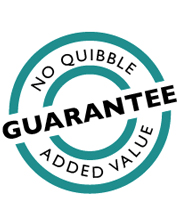Depreciation explained
 Many managers get confused by depreciation. In everyday language, the term is used to mean a reduction in the market value or worth of an asset. For example, a car that is said to have depreciated by £2,000 in a year, is commonly understood to be worth £2,000 less today than if it were sold a year earlier. Unfortunately, this is not what an accountant means by the term depreciation.
Many managers get confused by depreciation. In everyday language, the term is used to mean a reduction in the market value or worth of an asset. For example, a car that is said to have depreciated by £2,000 in a year, is commonly understood to be worth £2,000 less today than if it were sold a year earlier. Unfortunately, this is not what an accountant means by the term depreciation.
When an asset is purchased by a company, the accountants make an estimate for the asset’s useful life. If it were a computer, the useful life might be three years, whereas if the asset were a new production line, the useful life might be deemed to be 10 years. A company is at liberty to choose whatever depreciation policy it prefers and consequently, different companies purchasing identical assets will often have different depreciation policies. Furthermore, the useful life as defined by the accountants may or may not reflect the actual life of an asset.
If an asset were purchased for £10m and its useful life deemed to be 10 years, most companies would depreciate the asset on a straight-line basis over the 10 years i.e. the net book value (NBV) of the asset on the balance sheet would be reduced by £1m per annum for each of the 10 years and a depreciation cost of £1m per annum would be charged to the profit and loss for each of the 10 years. After 5 years, the NBV of the asset would be £5m and after 10 years, the NBV of the asset would be £0m. However, it is important to understand that the NBV is an accounting book value and one that does not necessarily reflect the market value of the asset, which may be more or less than the NBV at any point in time. Furthermore, whilst a depreciation cost of £1m per annum is being charged to the profit and loss for 10 successive years, this does not mean £1m cash leaves the company in each of those 10 years. This is because the £10m cost of the asset would have been paid to the supplier or suppliers as per the terms agreed when purchasing the asset.
To discuss your business critical issue
Please call Paul New on 020 8390 9972 or 07790 501225 or send a message.







